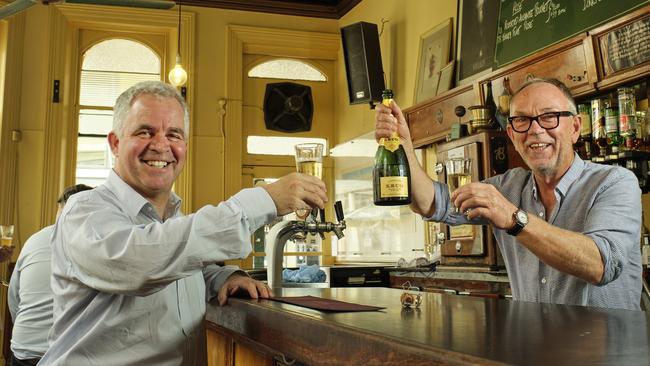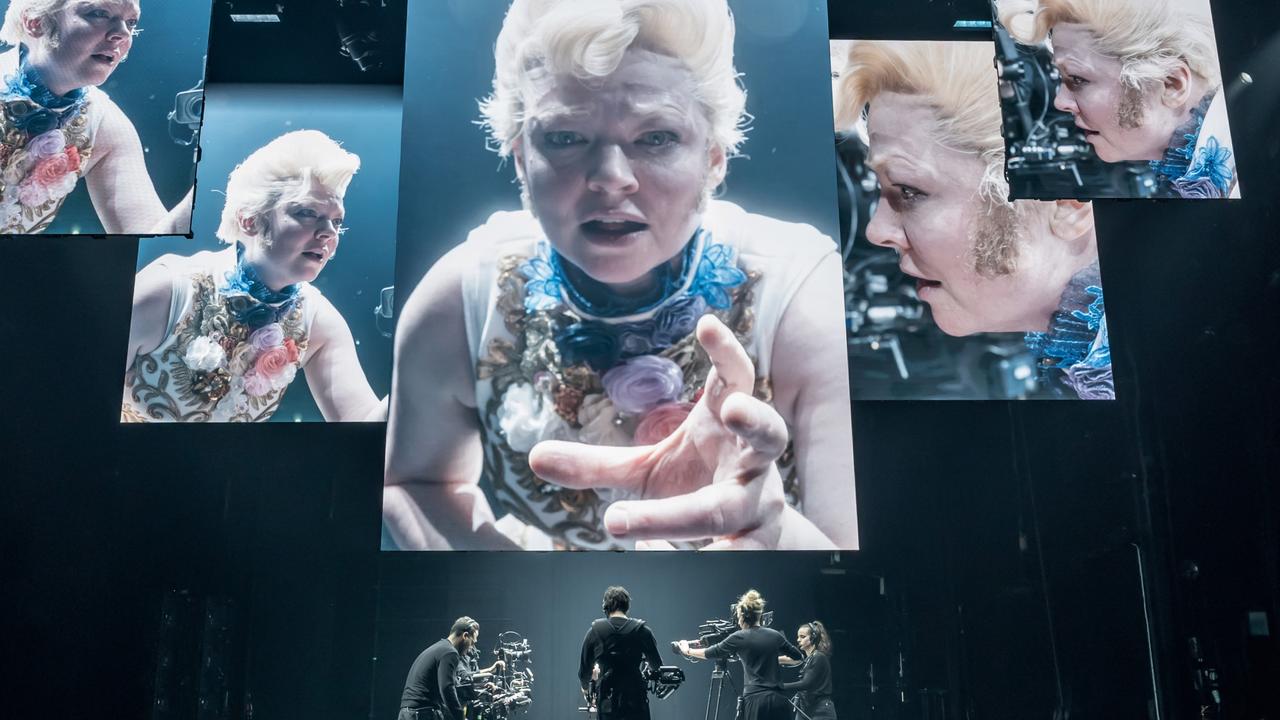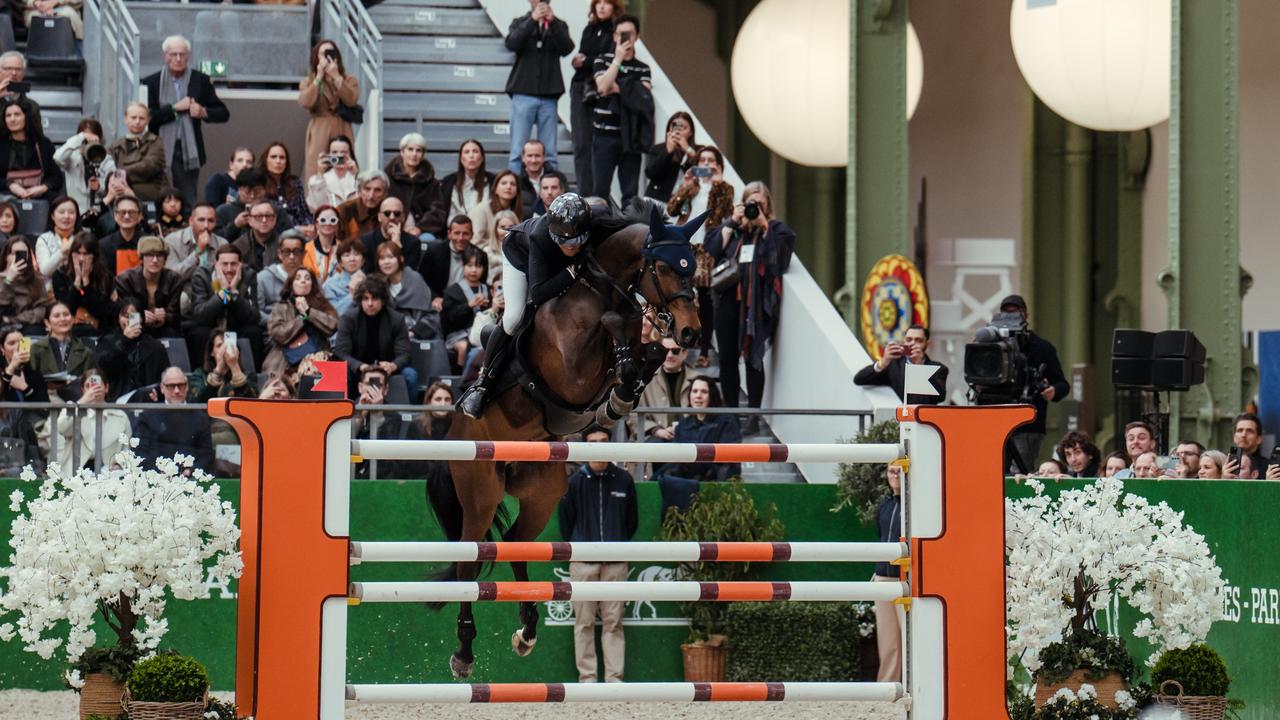A butcher of Krug an Exeter mainstay
The Krug champagne business was eight years old when the shingle went up in the east of a nascent city called Adelaide.

It is said there is champagne and then there is Krug. The house founded by Joseph Krug in 1843 is arguably the most distinctive, and most celebrated, in the world today.
The business was eight years old when the shingle went up on the other side of the world, in the east of a nascent city called Adelaide.
This was the first incarnation of the Exeter Hotel. The Exeter as it stands today was built on the original site in 1888. This column started drinking there exactly a century later and the place has hardly changed in the following three decades. The only alteration of note has been the removal of a battalion of long-dead Krug bottles lined up above the pub’s front bar.
There were so many of them the shelf was coming away from the wall.
The establishments that sell the most Krug around the world are luxury hotels and Michelin-starred restaurants. In Australia that title was held for years by a time capsule pretending to be a pub, where the ghosts of front-bar philosophers still hover over shabby stools and the dunnies are so bad you’d hesitate to use them after swallowing a live grenade and needing a moment of cubicle contemplation to save your life.
The connection between the most prestigious of champagne houses and an Adelaide pub with a dress code that could be summarised with the words “pants are polite” seems incongruous, but when you dig deeper it begins to make sense.
The great wine writer Philip White badgered then publican Nick Binns to put Krug on the old chalkboard wine list that still hangs over the bar.
This was back in the mid-1980s and the pub was establishing itself as the preferred watering hole of Adelaide’s artists, writers and winemakers.
Part of the attraction of the Exeter was a cellar that belied the street-level shabbiness. At one point the mythologised Clare Valley winery Wendouree was making the Exeter house red, sold over the bar for $6, alongside other cult wines such as Greenock Creek and Rockford.
White was a great friend of Henri and Remi Krug, the brothers who were the fifth generation to run the business, and keenly aware that a pub as distinctive as this one should serve nothing but the most individual champagne.
Binns wasn’t sure quite how to price a wine more expensive than the rest of his list combined, so he slapped on the same flat and thin mark-up he applied to everything else, and soon those who shared White’s love for Krug were drawn like sybaritic moths to a fizzy flame.
As if drinking the world’s finest champagne in the shabby splendour of the Exeter wasn’t juxtaposition enough, a tradition developed demanding the noblest fizz should be drunk in the humblest of glasses. While flutes are offered by staff when a bottle of Krug is ordered, those in the know insist on tiny beer glasses.
The seven-ounce “butcher” glass takes its name from a time when slaughtermen from an Adelaide abattoir would arrive at the railyards five minutes before the rolling livestock they were sent to collect in order to duck across to a pub for the cheekiest of quick beers.
The butcher glass tradition speaks volumes about Krug and the Exeter. It shows that Krug doesn’t need the finest glassware or the most lavish surroundings to show that it is special, and it confirms that even among the old beer taps and barflies of the Exeter there is a real thirst for exceptional quality.
Olivier Krug, the sixth generation to be custodian of the house, admits to some dismay when first introduced to the tradition on his first trip to Adelaide. But when he returned to Adelaide last weekend, the taxi from the airport delivered him straight to the Exeter’s door.
“Krug is about individuality and there’s no more unique encounter with Krug than what has happened here for years,” Olivier said in the front bar. “Krug is comfortable wherever people love Krug.”
He brought with him proof the uniquely Adelaidean practice is not only tolerated but celebrated. To mark the release of the 166th edition of Krug’s signature bottling, Grande Cuvee, Olivier has given the Exeter 166 specially embossed Krug butcher glasses, one for each bottle sold until they’re all gone.
This being the Exeter, even at $299 a bottle, they won’t last long.



To join the conversation, please log in. Don't have an account? Register
Join the conversation, you are commenting as Logout